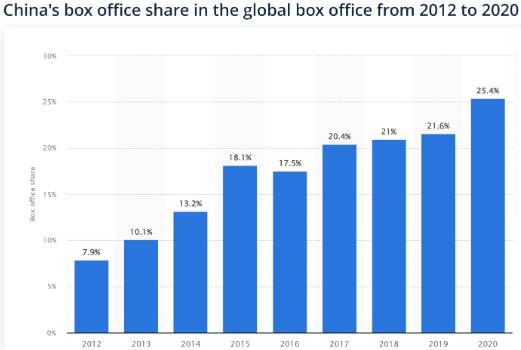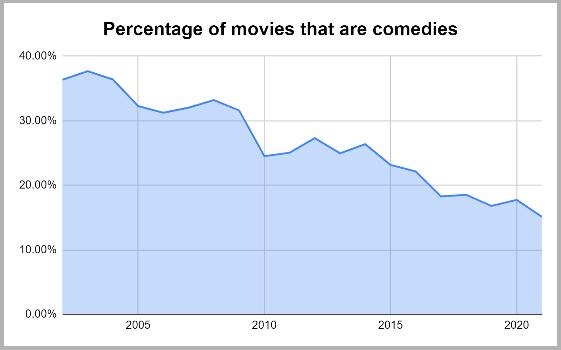This week, there was a watershed moment: Hollywood stood up to the Chinese government just a little bit. Here’s the headline:
Top Gun: Maverick sparks joy in Taiwan after its flag features on Tom Cruise jacket
The issue in brief: In the original Top Gun, Tom Cruise wore a jacket that had several patches on it including a Taiwanese flag. In the trailer for Top Gun: Maverick, Cruise wore the same jacket, but the flag had been digitally altered. This was presumably because the Chinese government has a well-known thing about Taiwan. Now, the movie has been released, and the flag is back.
The decision to risk offending China probably has something to do with the fact that Cruise’s character is named “Maverick”. You can’t be a maverick and capitulate to an oppressive government. It would be humiliating if our action stars publicly debased themselves to please the whims of far-off authoritarians oh wait that already happened:
One of the frequent questions on this blog is: “Are things getting less funny?” My position is: “Who knows, but yes, it sort of seems like it.” If things are getting less funny, it’s hard to say why; the shift would be caused by societal changes and entertainment industry trends but who could say what brought those changes about. But I think there's one area of clarity: China. As far as comedy movies are concerned, China is one big reason why those are almost extinct.
China is huge. If you laid everyone in China end-to-end, they would reach from one end of the galaxy to the other, which isn’t true, but it’s one of those stats that feels true because there are so many fucking people in China. At a time when Americans are going to fewer movies, Chinese are going to more; in 2020, China passed North America to become the world’s biggest box office. The gap is growing at light speed: In 2021 — which is only one year after 2020 according to my calculations — China accounted for 34 percent of global box office revenue. The US was only 22 percent. This isn’t just a Covid thing; China has gotten very into movies in the past decade:

In some ways, I welcome this change. I have nothing positive to say about the Chinese government, but I want to be clear: When the Chinese people gain wealth and live happier lives, I think that’s a good thing. American dialogue about China is often jingoistic and zero-sum, and I want to steer clear of that. The Chinese people suffered one of history’s most brutal invasions followed by one of history’s most nightmarish governments, and I think we can all agree that watching Transformers: Age of Extinction is probably a slight improvement on having your farm collectivized at gunpoint.
Unfortunately, the Chinese Communist Party is heavily involved with movies. The CCP tightly controls what can be shown on Chinese screens; only 34 American movies are allowed in each year. Not surprisingly, this has led to widespread altering of American movies to please Chinese authorities. Some of the more egregious examples include changing the villain in Red Dawn from China to North Korea, and letting Chinese officials help design the skyline of a futuristic Shanghai in Looper. A recent release of Fight Club changed the movie’s iconic ending from this:
To this:
That’s awesome. I do respect the balls it takes to blunder in and give a highly regarded cult classic a “P.S. Poochie died on the way back to his home planet” ending. I would laugh very hard if classic movies surprised me with new, happy endings, such as:
Apocalypse Now:
Citizen Kane:
No Country for Old Men:
China’s censorship isn’t just heavy-handed; it’s weird. Back to the Future is banned because it involves time travel, which the CCP sees as inherently political.1 Ghost stories are forbidden. Having a Chinese character in your movie can help butter up the censors, but they might decide that the character’s fingernails are too dirty and send your $300 million Pirates of the Caribbean movie to a watery, unprofitable grave. I’ve complained before about the chilling effect caused by arbitrary rules, and this is that phenomenon in its purest form: Some dust-covered CCP loyalist is cutting up your script with the goal of taking as few risks as humanly possible. At least the 23 year-old sensitivity reader who told me it was ablest to suggest that blind people can’t see didn’t lecture me about morality while being indicted by the International Criminal Court.
Censorship creates a terrible atmosphere for comedy. Comedy is inherently subversive; when it promises to play by rules imposed by authority figures, it’s neutered. Just as it hurts a character called “Maverick” to appear servile and timid, comedy is hurt when it tries too hard not to offend. You can’t please all the people all the time, and you should probably please CCP bureaucrats basically none of the time. And if you do please them, then you might be doing comedy wrong.
Countries have censored movies before. The Life of Brian was banned in a few countries due to alleged blasphemy. The Philippines bans Claire Danes movies because of comments she made about Manila (and apparently not because My So-Called Life was narcissistic and overwrought). Nova Scotia banned Last Tango in Paris, which is the cutest thing I’ve ever heard. Needless to say: Losing access to China’s population of 1.4 billion is quite different from losing access to Nova Scotia’s two million seals, three billion lobster traps, and one thousand lonely lighthouse keepers who are one bottle of homemade gin away from proposing to a seagull.
The ideal American movie for the Chinese market is one that: 1) Has the potential to be a blockbuster, and 2) Plays it safe. That doesn’t describe most comedies. Comedies have traditionally been a low-investment low-reward proposition. For decades, the recipe has basically been this: You get some wet-behind-the-ears SNL cutup, pay them peanuts to film Boner University 7 in four days, and release it during some dead spot in your schedule. The film won’t make big money, but that’s fine because it cost about as much as you normally pay Burt Reynolds’ mustache concierge. You net a few million, buy your prostitute a boat, and call it a day.
But now, the entire industry only has 34 shots at the really big time every year. Studios won’t waste one of their China “slots” on some stupid comedy; those spots go to their big summer blockbusters. And when you factor in the headaches that often come with comedy — a comedian might get way up his ass about how comedy is inherently subversive, as I did a few paragraphs ago — the choice becomes even easier. Comedies are extremely poorly designed for this system.
Comedy also often fails to translate across cultures. I somewhat disagree (for pedantic reasons that I’ll cram into this footnote2) with Eddie Izzard’s argument that humor is universal; I feel like I’ve noticed different senses of humor across different parts of Maryland. I’ve also done some standup in the English-speaking parts of Europe, and it’s just…different. The English enjoy wordplay; the Dutch like boundary-pushing. Scots like anything as long as you drink with them afterwards. Some experiences are universal but others simply aren’t, and writing a movie that uses references, observations, and touchstones that are recognizable across cultures is a tall order.
Movies that do well in China are usually action blockbusters. Superhero movies do well, and the Fast and the Furious movies are huge. China is basically the reason why there are more Transformers movies than Duggar kids. I’m not implying that Chinese tastes are unsophisticated; those movies aren’t my cup of tea, but that stuff is popular everywhere. In fact, I felt common cause with Chinese moviegoers when I saw reports that they were “confused or bored” by the plot of Star Wars: Rogue One. That tells me that they really do understand how movies are supposed to work.
China is just one part of a larger trend. The movie market is increasingly global; countries other than the US and Canada now make up 79 percent of box office receipts. China accounts for just under half of that total. Hit movies now have to play to audiences in India, Nigeria, Brazil, Turkey…what do all those people find funny? I’d say “jokes about your parents”, but Crazy Rich Asians bombed in China, so go figure. Instead of trying to solve a maybe-unsolvable global comedy puzzle, it’s easier to give people what we know they like: Fast cars, awesome CGI, and tits tits tits tits tits tits tits. Never forget that Baywatch is possibly the most-watched TV series of all time.
The shift to a global market is part of the reason why there aren’t many comedy movies these days. The trend is pretty unambiguous:

If this trend continues, in 20 years, negative six percent of movies will be comedies. I don’t know how that’s possible; some sort of anti-comedy would have to be developed. Grown Ups 2 seems like good progress towards that goal.
The next generation of funny stuff will probably either happen on TV or online. The modern economics of movies make it hard for large numbers of comedies to get made. It would be nice if the Chinese government would butt out, though as complaints with the CCP go, “they’re making it hard to make School of Rock 2” is pretty low on my list. I’m sorry to see comedy movies fade away; I have fuzzy memories of watching movies like Tommy Boy and This is Spinal Tap with my friends. But unless the Chinese Communist Party suddenly gets a lot funnier, I don’t see things changing.
Looper got around these prohibitions by spending a remarkable amount of time and effort sucking up to the CCP, as described with great regret in a book by the guy who did the sucking up.
Eddie’s argument — and you really do need to listen to the whole five minutes — is basically that humor preferences don’t align with national boundaries. Within any country, there will be different senses of humor; some people will think that comedy style X is brilliant, while other people will think it sucks. I definitely agree with that. But I’d add that the percentage of people who enjoy comedy style X might differ wildly between countries. That reality basically constitutes the cultural differences that I talk about in this article.









One of the subplots of the Disney/Florida story was that Disney tends to push for editorial changes to reduce how much queer content there are in its shows and movies. It's an open secret that this is basically done at the behest of appealing to the Chinese markets.
I recently came across an article claiming the problem with The Pentaverate was that it had about as much substance and as many laughs as a film length production but they stretched it into a series for Netflix because nobody wants comedy films. In addition to all the economic factors that contribute to why comedy films aren't being made for theatrical releases, I would suggest another wrinkle, and that is the internet. One of my favorite feelings in the world is to laugh until I cry, and realistically it probably happens 3 or 4 times a year. When I think of the things that have made me do that, they're almost always experiences I've had in front of the computer. The last time it happened in the theater was probably the ill-fated gown emporium expedition in Bridesmaids. The last time it happened online was a few weeks ago in Christian Finnegan's substack when he nailed a bunch of quips about Steely Dan and the cumulative effect was too much for me. How you gonna spend $40M on a movie with less humor potential than the best Twitter threads? I miss the big monoculture experience of a comedy blockbuster, too. But like with the music business, the best to be had is no longer under the umbrella of the giant companies. It's hiding in plain sight, waiting for you to be lucky enough to trip over it.